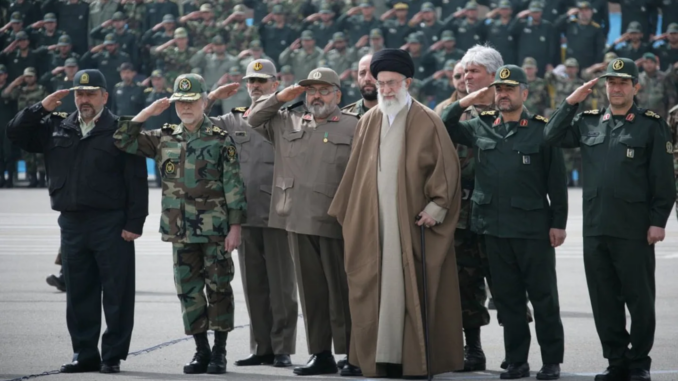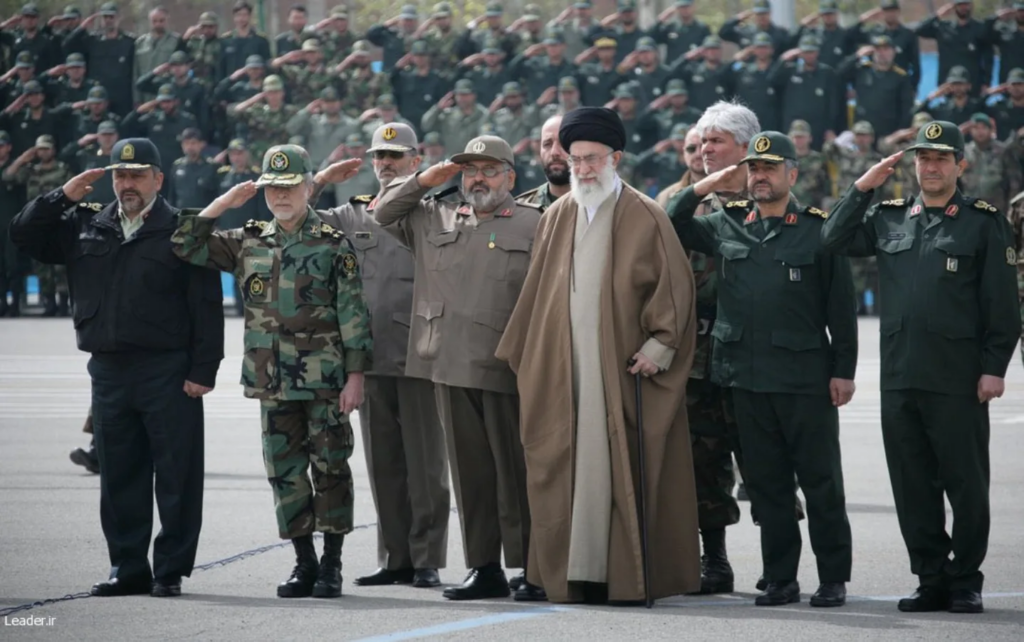

Iran Plans to Launch a Preemptive Attack on the U.S. Military Base in Diego Garcia
In a shocking turn of events, Iranian officials have reportedly indicated plans to launch a preemptive attack on the U.S. military base in Diego Garcia, a British Indian Ocean Territory located strategically in the Indian Ocean. This development has raised concerns across the global security community, with analysts speculating about the potential ramifications of such an action on international stability and U.S.-Iran relations.
The Strategic Importance of Diego Garcia
Diego Garcia, home to a U.S. military base, is one of the most critical assets for American military operations in the Indian Ocean region. Located around 1,000 miles south of India and 2,000 miles east of Africa, the base is strategically positioned to serve as a launch point for U.S. military forces in the Middle East and South Asia. The base is integral for air and naval operations, offering vital refueling and logistics support for the U.S. military’s presence in the region.
The U.S. base on Diego Garcia has been a cornerstone of American military strategy, especially in operations related to the Middle East and the ongoing tensions with Iran. The island’s location enables quick response times for air and naval forces, providing a crucial advantage in maintaining military superiority and power projection. As a result, any threat to the base is taken seriously by military and diplomatic authorities.
The Escalating Tensions Between the U.S. and Iran
Tensions between the United States and Iran have been at a boiling point for several years, particularly since the U.S. withdrew from the Joint Comprehensive Plan of Action (JCPOA) in 2018 and re-imposed sanctions on Iran. The strained relations between the two countries have only intensified due to Iran’s nuclear program, missile development, and involvement in regional conflicts through proxy groups.
Recent military and diplomatic confrontations between the U.S. and Iran have led to an increasingly volatile situation. In particular, the U.S. has maintained a significant military presence in the Middle East, including in countries such as Iraq, Saudi Arabia, and Bahrain. As a result, the Iranian government has repeatedly expressed frustration with what it perceives as U.S. aggression and interference in the region.
The possibility of a preemptive Iranian strike on Diego Garcia comes amid mounting concerns over the potential for direct military action. While Iran has not officially confirmed its intentions, sources within the Iranian government and military circles have hinted at the idea as a response to continued U.S. presence in the region and what Tehran views as an existential threat posed by American military operations.
Iran’s Strategic Calculations
Iran’s reported plan to strike Diego Garcia is believed to be a calculated move aimed at demonstrating its military capabilities and retaliating against U.S. military presence in the region. By targeting such a critical U.S. asset, Iran would send a powerful message that it is willing to escalate the conflict, potentially drawing the U.S. into a more direct confrontation.
Several factors may be influencing Iran’s decision to contemplate such an attack:
- Retaliation for U.S. Actions: Iranian officials may view this as a retaliatory action against perceived U.S. provocations, including sanctions, military interventions, and U.S. support for Iranian adversaries in the region.
- Disrupting U.S. Military Operations: Striking Diego Garcia could cripple U.S. military operations in the region, particularly in the Indian Ocean, where American forces conduct key operations. By disrupting this critical base, Iran could limit U.S. operational effectiveness and disrupt American military logistics.
- Projecting Power: Iran may be seeking to demonstrate its growing military capabilities, especially after years of developing and testing missile technology. A successful strike against a U.S. base would elevate Iran’s position on the world stage, signaling its ability to confront a global superpower.
- Deterrence: Iran may view the attack as a way to deter further U.S. actions in the region, particularly military strikes or any escalation in hostilities. By attacking Diego Garcia, Iran could aim to send a message that U.S. military intervention will have severe consequences.
The Potential Consequences of an Attack
Should Iran follow through with its reported plans, the consequences could be catastrophic, not only for U.S.-Iran relations but for the broader Middle East and international stability. A military strike on Diego Garcia would likely provoke a swift and severe response from the United States, potentially leading to all-out conflict between the two nations.
Here are some potential consequences of such an attack:
- U.S. Military Retaliation: The United States would almost certainly retaliate, potentially with airstrikes or missile attacks targeting Iranian military facilities and infrastructure. This could lead to widespread military escalation in the region, with significant loss of life and destabilization.
- Regional Conflict: A direct conflict between the U.S. and Iran would likely drag in other countries in the region, including U.S. allies such as Saudi Arabia and Israel. Proxy groups supported by Iran, such as Hezbollah and various militia groups, could also increase their activity, leading to heightened violence across the Middle East.
- Global Economic Impact: The Middle East is a major hub for global oil production and shipping. Any conflict that disrupts the flow of oil through the region would have a profound impact on global markets, potentially driving up oil prices and causing economic instability.
- International Diplomatic Fallout: A military strike on Diego Garcia would strain U.S. relations with its allies and create divisions within the international community. While many countries may support U.S. actions, others, particularly in Asia and Europe, could push for diplomatic solutions rather than military escalation.
The Role of Diplomacy
While the military implications of such an attack are dire, there is still room for diplomatic intervention. International actors, including the United Nations, the European Union, and regional powers such as China and Russia, could play a role in de-escalating the situation. Diplomatic efforts aimed at bringing both Iran and the U.S. to the negotiating table could help prevent an outbreak of war.
The possibility of a preemptive strike by Iran also highlights the broader issue of nuclear proliferation in the region. The international community remains deeply divided over how to handle Iran’s nuclear ambitions, with many nations advocating for diplomacy, while others, particularly Israel, call for a more forceful approach.
Conclusion
Iran’s reported plans to launch a preemptive attack on the U.S. military base in Diego Garcia represent a dangerous escalation in the already volatile relationship between the two nations. Should such an attack occur, it would have far-reaching consequences, potentially leading to military conflict in the Middle East and beyond. While the international community continues to push for diplomatic solutions to the crisis, the looming threat of war underscores the fragile balance of power in the region. The coming days and weeks will be critical in determining whether diplomacy can avert a catastrophic conflict, or if the region will be pushed into another devastating war.